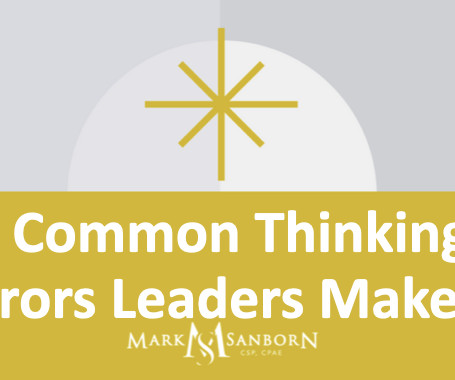When the Leader Needs Help
Great Leadership By Dan
JULY 15, 2016
I call this contradiction in the demands made of an entrepreneur the Paradox of Scale; in order to achieve fast growth, you had to be disruptively innovative and improvisational, and in order to sustain it, you have to become intensely disciplined and rigorously managerial. Some founders have no problem at all with this transition.











Let's personalize your content